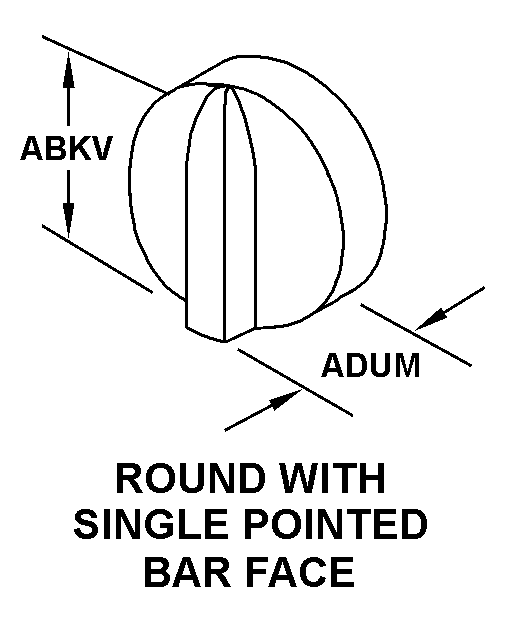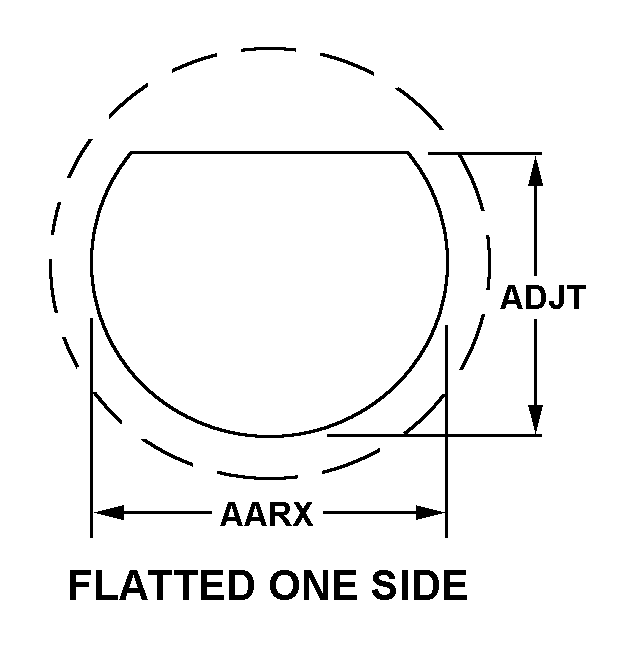5355010284856
Price Quote Get an up to date pricing and availability quote for this product. Order online or over the phone.
Quality Commitment
Serving our customers with quality and safety first.
- AS9120 Certified
- Audited supply chain
- ITAR Registered
- DDTC Registered
- HAZMAT Certified
- Customer service objectives
- Every product 100% inspected

5355-01-028-4856 Specification Set by the OEM (see RNCC code 3)
0.252in. and 0.254in.
0.160in.
2
0.340in.
0.620in.
smooth
flatted one side
1.120in.
line
setscrews
0.222in. and 0.224in.
0.690in.
hexagon socket
32 screw hole
0.164in. screw hole ⁓11/64"
nondetachable
0.375 in. min, 0.385 in. max diameter of counterbore, 0.160 in. depth of counterbore
gray, fed std 595, 36231
round with single pointed bar face
unc screw hole
Cross Reference Parts Part numbers that meet the specification outlined on this page and set by the OEM
Identification Item Identification Guide (IIG) and Item Name Code (INC)


Definition Definition of approved item name (AIN): "KNOB"
An item designed to transmit manual, rotary or linear motion to other devices. May include detachable or nondetachable stud (shaft), pointer, or skirt. It may have reference markings in the form of dots, arrows, hairlines, and/or symbols which may be used in conjunction with a calibrated panel, vernier indicator, and the like to indicate the position or motion of items. For items having spokes or simulated spokes radiating from near the center to near the outside rim of the item and relatively thin round disk-shaped items 3 inches (76.2 mm) in diameter or over, see handwheel. For items calibrated in units or series of divisions to denote relative positioning of devices see dial, control. Excludes doorknob; and handle (as modified).
5355-01-028-4856 Material Hazmat, Precious Metals, Criticality, Enviroment, and ESD
Indicates there is no data in the hmirs and the nsn is in a fsc not generally suspected of containing hazardous materials.
Precious metal content is unknown
The item does not have a nuclear hardened feature or any other critical feature such as tolerance, fit restriction or application.
Identification Codes
HMIC: Hazardous Material Indicator Code. A one position code that identifies a hazardous item.
PMIC: Precious Metal Indicator Code. A one position code which identifies items that have precious metals as part of their content. precious metals are those metals generally considered to be uncommon, highly valuable, and relatively superior in certain properties such as resistance to corrosion and electrical conductivity.
ESD: Electrostatic Discharge. Indicates if an item is susceptible to electrostatic discharge or electromagnetic interference damage. electrostatic discharge damage occurs when an accumulation of static electricity generated by the relative motion or separation of materials is released to another item by direct contact. electromagnetic interference damage occurs when an item comes into proximity with an electrostatic or magnetic field.
ENAC: Enviromental Attribute Code. Identifies items with environmentally preferred characteristics.
CRITL: Criticality Indicator Code. Indicates an item is technically critical by tolerance, fit, application, nuclear hardness properties, or other characteristics.
Material Management Material categorization and source of supply
Defense logistics agency, enterprise business systems
Material Codes
SOS: Source of Supply. A three position code or routing identifier code (ric), which identifies the source of supply activity.
SMIC: Special Material Indicator Code. A two position code, which categorizes material on the basis of requirements for source or quality control, technical design or configuration control, procurement, stocking and issue control, special receipt, inspection, testing, storage, or handling.
MMAC: Material Management Aggregation Code. A two position code that identifies an item of supply to be managed by a specific activity manager.
MCC: Material Echelon Code. A two position code employed by the marine corps in classifying items into categories by materiel category and procurement echelon. the alphanumeric management code is in the first position and identifies the materiel category
IMC: Denotes wether items shall be subjected to integrated management under the defense supply agency or retained by the individual military service or other department of defense components for their management. Assigned by th activity responsible for item management coding.






